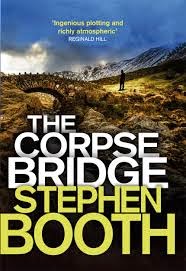On a metaphysical level this might be some powerful writing. I can imagine all the stressed-out philosophers, after taking a break from all the hard thinking they do from 9 to 5 and kicking back with a beer to relax and be entertained, being stimulated by this line: I wake up…
Others will simply be mystified by its profoundness. The next line kind of ruins the endless loftiness of the opening line.
The touch of that cold object against my penis wakes me up.
This raises a question or two. Where is this guy? I thought he was in bed. Maybe he is, which would make that cold object all the more troubling. I read on.
I didn't know I could urinate without being aware of it.
So this guy is in some weird situation in bed. We assume he has suffered some catastrophe but need to read on to find out. The writing is terse, blunt and full of tension. I like it. Read some random lines I've brought together:
I can’'t even make out the nearest voices. If I opened my eyes, would I be able to hear them?… But my eyelids are so heavy: two pieces of lead, coins on my tongue, hammers in my ears, a… a something like tarnished silver in my breath. It all tastes metallic. Or mineral...Then I just lay there, face down on the bed, with my arms hanging, the veins in my wrist tingling...I tighten my face muscles, I open my right eye, and I see it reflected in the squares of glass sewn onto a woman'’s handbag. That’'s what I am.
First thing said:
"Look, Doctor, he'’s just faking..."
"Mr. Cruz…"
"Even now in the hour of his death he has to trick us!"
So it seems this person is dying or perhaps is just faking it. In any case, there is an uncontrollable desire to read on.
Verdict: Pass
This is part of the series: the top 100 novels from Daniel S. Burt's book called Novel 100, the top 100 novels of all time. There is debate of course as to what should be on that list, but his opinions are as good as any. The Death of Artemio Cruz comes in as the 72nd best novel of all time.
Sincerely,
Theodore Moracht


































